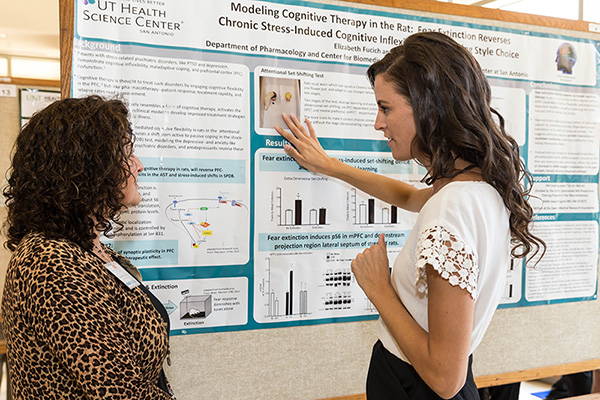Important Dates
Dec
01
Priority Application Deadline
Jan
01
Final Application Deadline
Contact us
For information on the Neuroscience Discipline, please contact:David Morilak, Ph.D., Director
morilak@uthscsa.edu
210-567-4174 Lexi Soward, Neuroscience Discipline Coordinator
soward@uthscsa.edu
210-567-4220 For information on the IBMS Ph.D Program, please contact:
Michael Berton, Ph.D., IBMS Program Director
berton@uthscsa.edu
Donna Navarro, MS, IBMS Assistant Director
navarrod3@uthscsa.edu
Requirements
- Bachelor's degree or a Master's degree and relevant advance coursework
- GPA of 3.0 or above
- Submit transcripts to Office of the Registrar
Tuition and fees
Students receive a stipend of $35,000. Tuition, fees, and basic student health insurance are covered by the program.

My proposed research specifically interests me in that I can investigate how stress impairs the way you think and how behavioral therapy fixes that, using cutting edge techniques.
Elizabeth Fucich, Class of 2017